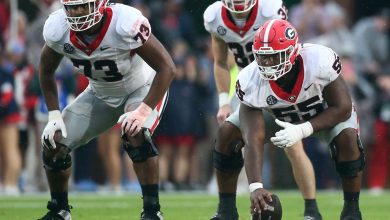Miami Hurricanes face criticism over spending as they gear up with high hopes to win the ACC title in 2025.

As the Miami Hurricanes prepare for the 2025 college football season, the spotlight is not only on their on-field potential but also on the controversy surrounding their recent spending. The program, known for its storied history and passionate fanbase, is facing criticism over its financial decisions amid ambitious plans to claim the Atlantic Coast Conference (ACC) title. This complex situation raises questions about the balance between investment in success and maintaining ethical and financial responsibility.
This article delves into the details of the Hurricanes’ spending, the criticisms leveled against the program, and how the team’s aspirations for the 2025 ACC championship are shaping their strategy moving forward.
Background: Miami Hurricanes’ Rich Football Tradition
The Miami Hurricanes boast one of the most celebrated college football programs in history, with multiple national championships and a legacy of producing NFL stars. Over the years, the Hurricanes have been a perennial contender in the ACC, consistently aiming for conference supremacy and national relevance.
However, the landscape of college football is changing rapidly. With the advent of Name, Image, and Likeness (NIL) deals, increased competition for recruits, and rising operational costs, programs are compelled to invest more heavily to maintain or elevate their status.
The Controversial Spending: What’s Happening?
Increased Budget Allocation
Recent reports indicate that the Miami Hurricanes have significantly increased their spending in several key areas:
-
Recruiting: Aggressive recruitment budgets have been allocated, including travel, scouting, and hosting top-tier prospects.
-
Facilities: Investments in state-of-the-art training facilities and stadium enhancements have been ramped up.
-
Coaching Staff: Higher salaries and bonuses have been paid to attract and retain top coaching talent.
-
Player Support: Increased spending on nutrition, health services, and player development programs.
NIL and Transfer Market
The Hurricanes have also been active in leveraging NIL opportunities to attract and retain elite talent. This includes facilitating lucrative endorsement deals for players and offering competitive benefits to transfer portal recruits.
Criticism and Concerns
Despite these investments aiming to propel Miami to the forefront of college football, the spending spree has drawn criticism from various quarters.
Financial Ethics and Transparency
Critics argue that the level of spending raises questions about transparency and financial ethics. Concerns include:
-
Whether funds are being used appropriately and responsibly.
-
The potential for violations of NCAA rules or spirit.
-
The impact on the program’s long-term financial sustainability.
Competitive Fairness
Some voices in the college football community express unease about the escalating “arms race” of spending, fearing it may undermine competitive balance within the ACC and beyond. Smaller programs with fewer resources might struggle to compete, potentially widening the gap between elite and mid-tier teams.
Public Perception and Fan Reactions
Fans and alumni hold diverse opinions. While many appreciate the commitment to winning and upgrading the program, others worry about losing the traditional values and identity of Miami football amidst commercial pressures.
Miami’s Response and Justifications
Program officials and supporters defend the spending as necessary to remain competitive in an increasingly cutthroat environment.
Investment in Excellence
They argue that such investments are essential to attract top talent, improve player welfare, and compete with rival programs that are similarly ramping up their budgets.
Focus on Compliance
Miami’s administration emphasizes strict adherence to NCAA and ACC regulations, asserting transparency in financial dealings and compliance monitoring.
Long-Term Vision
The Hurricanes frame these expenditures as part of a broader vision to sustain the program’s elite status and success over the coming decade.
The 2025 ACC Title Ambitions
Amid the spending controversy, Miami’s sights remain firmly set on winning the ACC championship in 2025. This goal drives much of the program’s strategic decisions and motivates players, coaches, and staff.
Strong Recruiting Classes
The Hurricanes have secured top-ranked recruiting classes for upcoming seasons, blending high school stars and impactful transfers.
Coaching Stability and Strategy
Under the leadership of head coach [Insert current head coach], the Hurricanes are developing a balanced, dynamic team with a focus on both offense and defense.
Player Development
Enhanced support systems and facilities aim to maximize player growth and reduce injury risks, giving Miami a competitive edge on game day.
Key Players and Impact Prospects for 2025
Several standout players are expected to lead Miami’s charge for the ACC title:
-
Quarterback: [Name], known for his strong arm and leadership.
-
Defensive Star: [Name], an aggressive linebacker or defensive back anchoring the defense.
-
Skill Position Players: A mix of speedy receivers and powerful running backs enhancing offensive versatility.
Their development will be critical to translating investments into wins.
Challenges Ahead
Despite high hopes, the Hurricanes face several challenges:
Intense ACC Competition
Rival programs like Clemson, Florida State, and North Carolina remain formidable foes, requiring Miami to consistently perform at an elite level.
Managing Expectations
The pressure to deliver a championship amidst criticism could impact team morale and focus.
NCAA and Conference Scrutiny
Ongoing oversight may increase, especially if spending patterns trigger investigations or concerns.
The Broader College Football Context
Miami’s situation reflects wider trends in college football:
-
The escalation of spending on facilities, recruitment, and player amenities.
-
The transformative impact of NIL on program dynamics.
-
The growing tension between commercialization and amateurism ideals.
How Miami navigates these forces could set an example for other programs.
What Fans Can Expect Moving Forward
Fans should anticipate a highly competitive Miami Hurricanes team, bolstered by significant resources and motivated by championship aspirations. Transparency efforts and open communication from the program will be vital in rebuilding trust amid the spending criticism.
The Miami Hurricanes are at a crossroads where ambition meets scrutiny. Their substantial spending underscores a commitment to winning the ACC title in 2025 but also raises important questions about financial ethics and the evolving nature of college football.
Balancing investment with responsibility will be key as the Hurricanes strive to restore their legacy and deliver the championship success their fans crave. The 2025 season promises to be a pivotal one — not just for the Hurricanes on the field but for the identity and future of the program as a whole.









